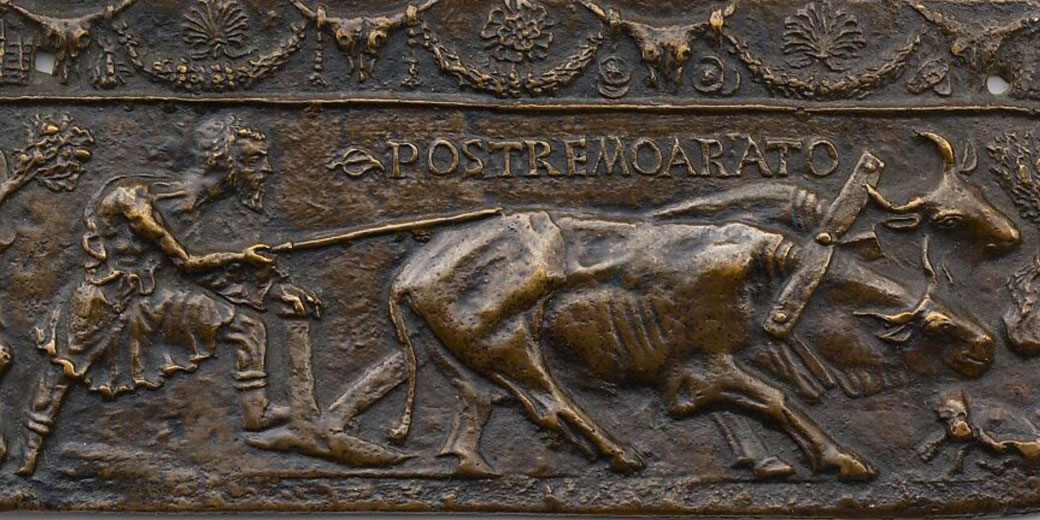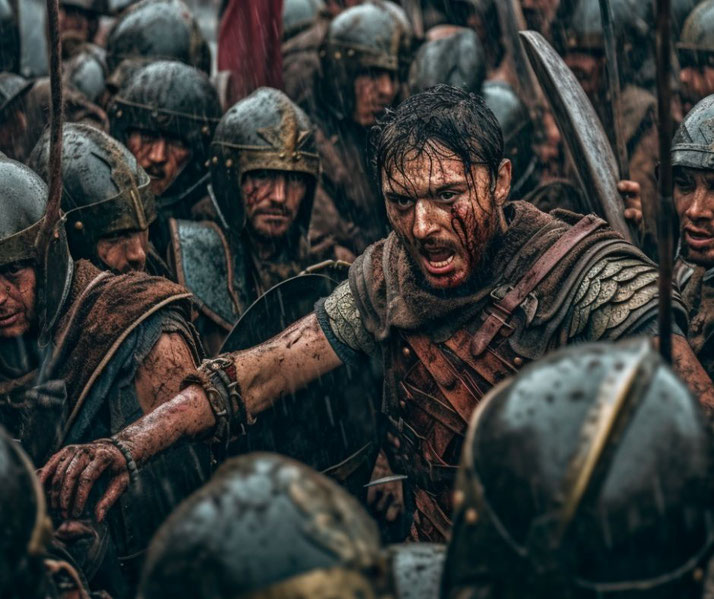Cincinnatus: The Roman war hero who gave up absolute power to return to his farm

Lucius Quinctius Cincinnatus was considered the embodiment of the Roman ideals of leadership, sacrifice, and civic duty.
Born into a time of political upheaval and military challenges, Cincinnatus's life journey from a simple farmer to the savior of Rome is a narrative that has inspired countless generations.
His decision to relinquish absolute power after just 15 days to return to his farm underscores a profound commitment to the greater good and the values of the Roman Republic.
This selfless act, juxtaposed against an era when power was often sought for personal gain, highlights the character of a man who prioritized the welfare of his city above all else.
Growing up in the earliest days of Rome
Lucius Quinctius Cincinnatus was born around 519 BCE into the patrician Quinctia family, one of Rome's oldest and most distinguished clans.
His upbringing in the early Roman Republic was marked by a society deeply rooted in traditions, where honor and duty played pivotal roles.
As a young man, Cincinnatus would have been educated in the ways of Roman governance, military strategy, and the classics, preparing him for the roles he would later assume.
The Roman Republic during Cincinnatus's youth was a hotbed of political strife and social unrest.
The ongoing power struggles between the patricians and plebeians, the two primary social classes, often led to public discord.
Amidst this backdrop, Cincinnatus married Racilia, a woman of lesser social standing, which was somewhat unusual for a man of his patrician status.
Despite the societal norms of the time, their union was said to be one of mutual respect and affection.
Cincinnatus's early career was primarily agricultural. He owned a modest farm across the Tiber River, where he cultivated the land and lived a relatively unassuming life.
However, events soon transpired that would thrust him into the limelight.

How he suddenly became the most powerful Roman
One of the most defining moments of his military career occurred in 458 BCE when Rome faced a dire threat from the Aequi, a neighboring tribe.
The Roman army, under the command of Consul Minucius, found itself trapped in the Alban Hills, surrounded and on the brink of defeat.
Recognizing the gravity of the situation, the Roman Senate recognized the need for decisive action.
The traditional checks and balances of Roman governance, while effective in times of peace, could be cumbersome during emergencies.
The role of a dictator, vested with absolute authority for a limited six-month period, was conceived for such critical moments.

Cincinnatus, at the time of his appointment, was far from the political epicenter of Rome.
He was working on his farm, tilling the soil and leading a life of simplicity. When the Senate's envoys approached him with the news of his appointment, it was said he was reluctant, understanding the weight of the responsibility.
However, recognizing the gravity of the situation and his duty to Rome, he accepted the role.
As dictator, Cincinnatus was granted sweeping powers, bypassing the usual bureaucratic processes to make swift decisions.
His primary mandate was clear: rescue the trapped Roman army and repel the Aequi threat.
With a sense of urgency, Cincinnatus swiftly mobilized a relief force. Demonstrating exceptional leadership and tactical brilliance, he devised a plan to encircle the Aequi forces, effectively turning the tables on the besiegers.
In a decisive move, Cincinnatus's troops launched a two-pronged attack: while one faction drew the attention of the Aequi, the other circled around to trap them.
The strategy was a resounding success. The Aequi were soundly defeated, and the trapped Roman army was liberated.
Why he gave it all up
After his swift and decisive victory over the Aequi, many would have expected Cincinnatus to leverage his newfound authority and influence for personal gain.
However, defying these expectations, he chose a different path. Merely 15 days after assuming the role of dictator, with the immediate crisis averted, he relinquished his absolute authority and returned to his farm across the Tiber River.
This decision was emblematic of Cincinnatus's character. For him, the role of dictator was not a position of long-term power, but a temporary responsibility to safeguard Rome in its hour of need.
Once that duty was fulfilled, he believed it was essential to restore the regular order of governance and maintain the balance of power that defined the Roman Republic.
Back on his farm, Cincinnatus resumed the life of a farmer, tending to his crops and livestock.
The simplicity and tranquility of this life stood in stark contrast to the tumultuous world of Roman politics and warfare.
Yet, it was a life he cherished, finding solace in the rhythms of nature and the daily tasks of agriculture.

What Julius Caesar and Crassus thought of this story
Lucius Quinctius Cincinnatus's leadership style and decisions offer a unique contrast when juxtaposed against other notable figures in Roman history.
One such leader, Julius Caesar, also experienced the role of a dictator, but his approach to power differed significantly.
While Cincinnatus saw the dictatorship as a temporary measure to address a specific crisis, Caesar used it as a means to consolidate his control over Rome, eventually leading to the end of the Roman Republic and the rise of the Roman Empire.
Another leader, Marcus Licinius Crassus, one of the wealthiest men in Roman history and a member of the First Triumvirate alongside Caesar and Pompey, pursued power and wealth with an intensity that starkly contrasts with Cincinnatus's humility.
Crassus's ambition, particularly his ill-fated Parthian campaign, highlights the dangers of leadership driven by personal gain rather than civic duty.
Then there's Cato the Younger, a staunch defender of the Roman Republic and its traditions.
In many ways, Cato's dedication to the principles of the Republic mirrored Cincinnatus's own values.
Both men prioritized the well-being of the state over personal ambition. However, while Cincinnatus was willing to assume and then relinquish absolute power for the sake of Rome, Cato chose to end his life rather than live under the rule of Caesar's dictatorship.
Cincinnatus' influence on modern history
Lucius Quinctius Cincinnatus' story, characterized by selfless service and a principled approach to power, became a touchstone for discussions on leadership and governance.
In the subsequent centuries of Roman history, Cincinnatus was often invoked as the ideal Roman, embodying the virtues of humility, duty, and sacrifice.
Beyond Rome, Cincinnatus's influence can be seen in the founding principles of the United States.
The Founding Fathers, well-versed in classical literature and history, often looked to ancient Rome for inspiration.
George Washington, in particular, drew parallels to Cincinnatus. Like the Roman leader, Washington relinquished his military command after the American Revolution and later declined opportunities to assume more significant power, even when it was offered.
His decision to step down from the presidency after two terms further solidified the comparison.
In recognition of these parallels, the Society of the Cincinnati, an organization founded by Revolutionary War officers, was named in honor of Cincinnatus, symbolizing the values of civic virtue and leadership without prolonged power.
In essence, the legacy of Cincinnatus is a powerful reminder of the potential for leadership that prioritizes the collective good over personal ambition.
His story, while rooted in the specifics of Roman history, carries universal themes that continue to resonate in contemporary discussions about governance, power, and civic responsibility.
What do you need help with?
Download ready-to-use digital learning resources
Copyright © History Skills 2014-2025.
Contact via email
With the exception of links to external sites, some historical sources and extracts from specific publications, all content on this website is copyrighted by History Skills. This content may not be copied, republished or redistributed without written permission from the website creator. Please use the Contact page to obtain relevant permission.





